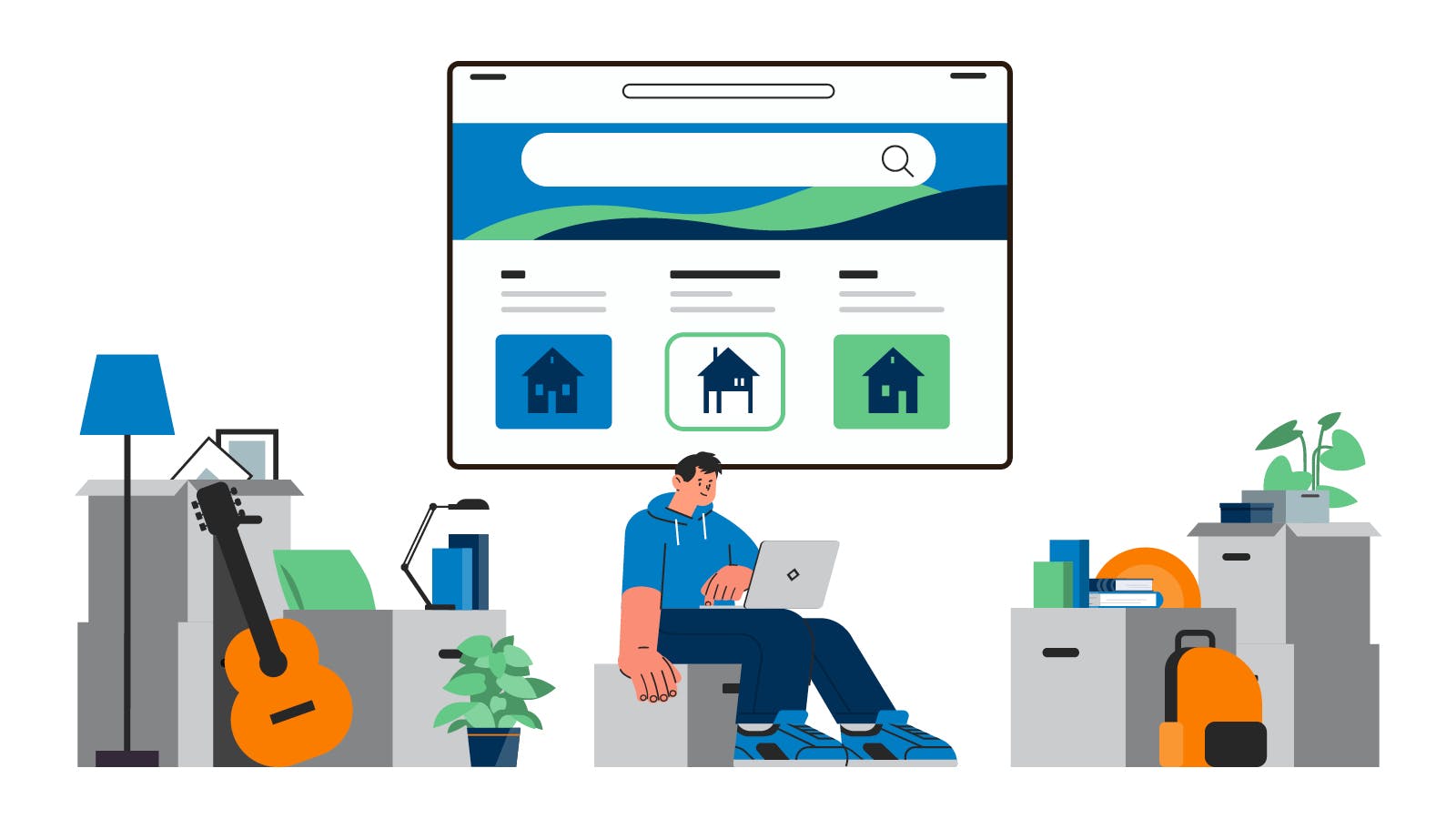It’s no secret the homebuying process can be intimidating. After all, your personal financial information, income and credit score are under a magnifying glass!
Luckily, there are a few tried-and-true methods to streamline your journey and make the process much more enjoyable. These 10 homebuying tips are sure to lower your stress level.
Tend to your credit
This one little number has a massive impact on your homebuying journey. Before you begin Zillow Surfing or even interviewing real estate agents, you’ll want to check your credit score.
While score aggregation sites can help, when it comes to purchasing a home, you should consider going straight to the source. Request a copy of your credit reports from TransUnion, Equifax and Experian. Your credit scores are numerical representations of all of the information on your credit report, so you’ll want to read these documents very carefully. Ensure that all accounts are yours, and that information is up-to-date and accurate.
If your score is lower than you’d like, work to improve it before getting too involved in the homebuying process. Getting a mortgage despite credit that’s lower than you hoped for is possible, but the improvement process can be lengthy and intensive. It may include paying down debts, requesting that errors be removed, or even simply waiting until your credit age increases. This is easier for some than it is for others – credit inequality has played a role since the invention of credit and different situations can make it harder to pay down balances. Whatever the case may be, work to boost this score as high as possible well before you connect with a mortgage professional to cut down on stress and improve your odds for a favorable loan.
Develop an ideal down payment amount
While you don’t necessarily need 20% down, your down payment amount will be key in determining the type of loan you might qualify for. It’s also important to note that higher down payment amounts may be technically “better”, as you’ll pay less over the life of the loan, but the ideal amount will depend on your market, preferences and personal financial situation. FHA loans, for example, allow borrowers to purchase with as little as 3.5% down and some veterans can purchase with 0% down through the VA loan program. Basically, the right number is variable.
Whatever the case may be, get clear on the amount you’d like to have. Perhaps you already have your desired amount stashed away, or maybe you’ll need to prioritize saving for a few months. Either way, understanding where you’d like to be will take the stress out of trying to save while home searching, and potentially losing out on the ideal home in the process.
Get clear on how much you can afford
While you’re thinking about an ideal down payment amount, you’ll also want to consider how much you might be able to borrow and what amount you’re comfortable with in relation to your monthly budget. Most mortgage professionals will use your debt-to-income (DTI) ratio in determining how much you qualify for. In the simplest terms, DTI is a comparison of the money you earn and the money you spend. In this case, spending includes all recurring debt expenses, housing costs, car payments, student loans and credit card debt. These expenses are then divided by your gross income (which is your monthly income before taxes) and the resulting decimal is multiplied by 100. This number is your DTI percentage. Many loan programs will require a DTI of 40% or lower. Those with higher DTIs will likely pay a higher interest rate, might not be able to qualify for their ideal loan program or may need to reduce their home buying budget.
Understanding the relationship between your expenses and income is critical in a stress-free home search. Calculating your DTI at the start of the process can help clarify your financial situation and perhaps prompt you to cut down on expenses, pay down debt or otherwise improve this figure. If you’re unclear on where to start, don’t stress! A finance professional can help with any specific issues.
Stick to the budget
When it comes to homebuying tips, this one may just top the list. There’s nothing more heartbreaking than falling in love with a home that’s firmly outside your budget. The key to a stress-free home search lies in determining exactly what you can afford and only viewing homes within your price range.
Also keep in mind that many borrowers choose to take out a loan that is lower than the maximum amount they qualify for. It may be tempting to bump that amount up once you start viewing homes within your budget, but ensuring everyone is clear on what you’d like to spend beforehand can help prevent a splurge situation.
Create a list of wants and needs
Differentiating the things that you want and the things that you need can help take some of the stress out of homebuying. Sit down, grab a pen and paper and get really honest with yourself.
For example, do you need a pool? Or a walk-in closet? Or are these ‘wants’ that could be leveraged to achieve your ‘needs’? Large families may need five bedrooms, but might be willing to compromise on hardwood floors. On the other hand, interior design-focused shoppers may need bay windows or exposed brick, but willing to sacrifice closet space to get them.
Get specific about what you want in a home. Then, use this list of homebuying tips to guide your search and sidestep the stress. Don’t let yourself be swayed by an in-ground pool or tasteful landscaping, if what really matters is proximity to work.
Do your research
Before shopping, take to the internet. Research potential neighborhoods, perhaps ranking them by preference. Explore prices, crime statistics, retail spaces, school districts and more to get a good picture of the community. If you’re able, in-person visits (at various times on different days) can further clarify if the neighborhood is a fit.
Throughout this process, you’ll begin to narrow down the neighborhoods that might work and those that are hard ‘nos’. This will help you begin the homebuying process empowered and in the know… and far less likely to feel stressed.
Collect paperwork well ahead of time
It’s no secret that the homebuying process requires plenty of paperwork. To prevent panicked calls to or from your mortgage professional down the line, begin assembling the necessary paperwork well ahead of time.
This might include:
- Income documentation
- Proof of assets
- Personal documents
- Pay stubs
- Tax returns
- Bank statements
- IDs
- Previous addresses
- Social security numbers
If your income is freelance or irregular, you may need to explore additional verification methods. A home finance professional can confirm that you have all the right documents on hand.
Be picky when building your homebuying team
You’re about to make the biggest purchase of your life! Ensure you have the right people on your side. After all, you can’t always trust that agent that your coworker’s cousin recommended.
A talented agent will streamline the home search process, sticking to your budget and communicating frequently. A subpar one, on the other hand, could derail the process entirely. Similarly, a great mortgage professional will compare and contrast multiple loan options, helping to ensure you end up with a loan option that works for you.
You want to feel confident in each and every member of your homebuying team. Consider speaking with multiple people before committing, read reviews or ask to speak to former clients and, when in doubt, go with your gut.
Get pre-qualified
Pre-qualification is a process in which the borrower is conditionally qualified for a home loan. In highly-competitive markets, pre-qualification can signal a safer bet to sellers, as there’s some assurance that you’re actually able to pay for the home.
To get pre-qualified, make an appointment with your loan originator of choice. They’ll then run a credit check (which shouldn’t yield any surprises, if you successfully completed the first step) and tell you how much you’re pre-qualified for. Keep this number in mind as you begin shopping and feel the stress melt away as you’ve become a more compelling candidate.
Never forgo the inspection
It’s becoming more and more common for buyers to waive home inspections in order to secure a purchase in very competitive markets, but this will almost certainly add more stress down the line. After all, the home inspection is one of the most important steps of the purchasing process.
A home inspector will identify any structural, electrical or plumbing problems, which require some of the most intensive and pricy home repairs. It’s an investment that could save you thousands of dollars in the long run, which should seriously cut down on stress in the short term. Unless you’re an avid risk taker, add the home inspection to your list of expenses and sleep easy knowing your new home is in tip-top shape.
Final thoughts on homebuying tips
Your homebuying process should be exciting and rewarding, not stressful. Tapping into a few helpful homebuying tips can help ensure the process goes smoothly and, with any luck, help you secure your dream home. So long, stress!
Published on June 6, 2022


